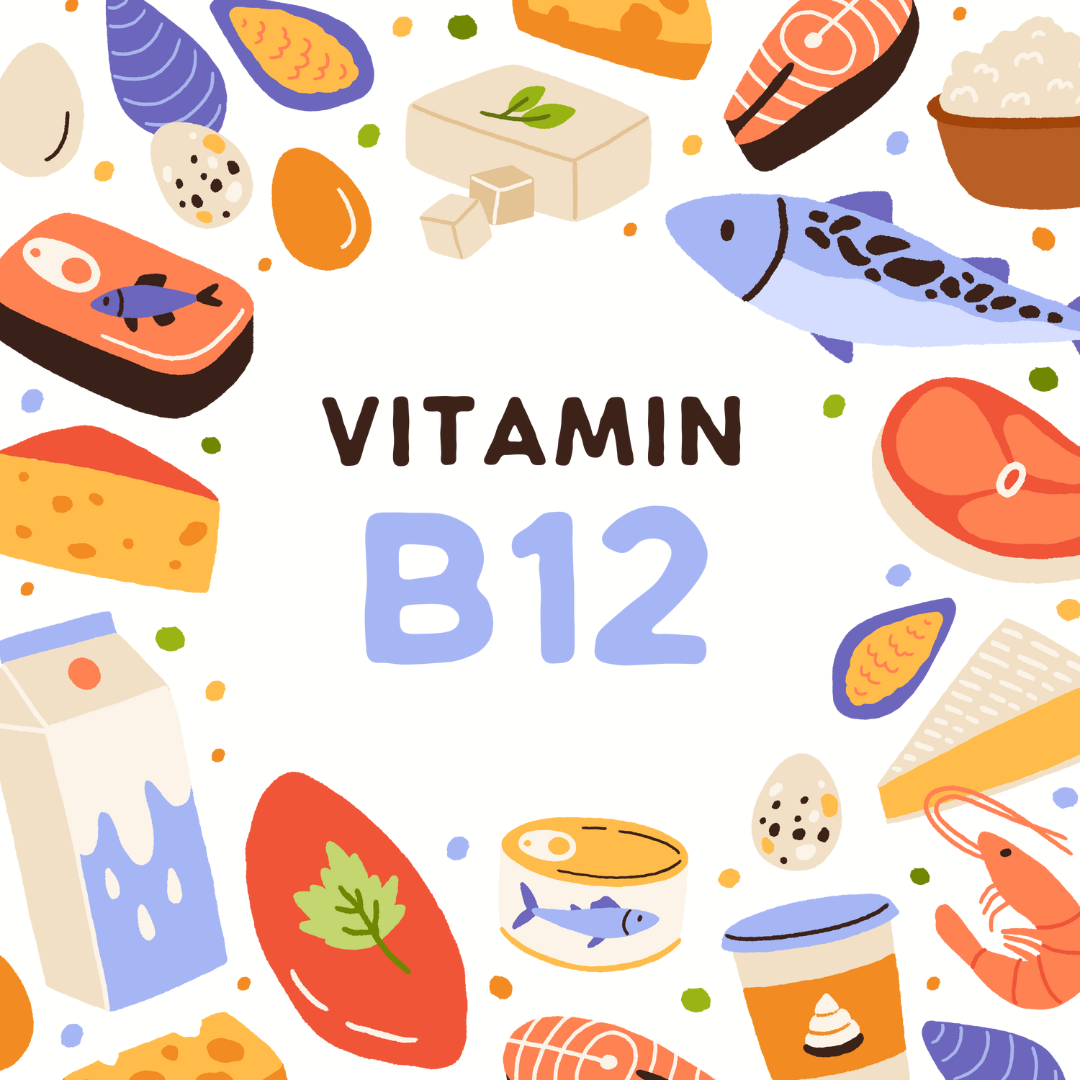Vitamin B12 is a water-soluble vitamin that is naturally present in some foods, including fish, meat, poultry, eggs, and dairy products. Many ready-to-eat breakfast cereals are fortified with vitamin B12.
Vitamin B12 is required for the development, myelination, and function of the central nervous system; healthy red blood cell formation; and DNA synthesis [1,4,5].
Vegans who consume no animal products and vegetarians who consume some animal products (e.g., dairy products, eggs, or both) but not meat have a higher risk of developing vitamin B12 deficiency because natural food sources of vitamin B12 are limited to animal foods [3,55]. Consumption of foods fortified with vitamin B12 (such as fortified nutritional yeasts) as well as vitamin B12 supplements can substantially reduce the risk of deficiency [55].
Because the ability to absorb B12 from food declines with age, deficiency is more common in older adults as well.
B12 deficiency can cause a variety of symptoms, including fatigue, headaches, depression, pale or yellow skin, mental impairment, and pain and inflammation in the mouth and tongue.
Many of the symptoms caused by low B12 levels are not specific to B12 deficiency, which can cause the condition to go undetected.
If you’re experiencing any of the symptoms listed above, it’s important to visit a healthcare professional to undergo appropriate testing and get the right treatment.
If you suspect you might have a B12 deficiency, it’s important to visit a healthcare professional to discuss your symptoms and undergo appropriate testing.
Reference
https://ods.od.nih.gov/factsheets/VitaminB12-HealthProfessional/
https://www.healthline.com/nutrition/vitamin-b12-deficiency-symptoms#The-bottom-line


